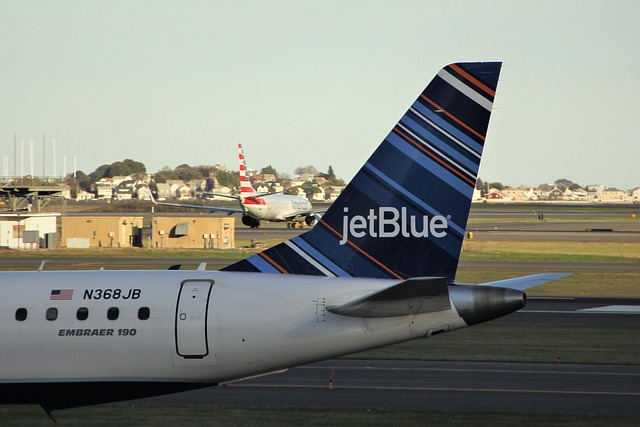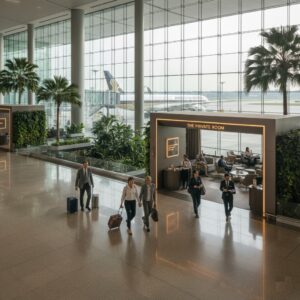In a joint effort, JetBlue and Shell Aviation are working together to increase the availability of sustainable aviation fuel (SAF) at Los Angeles International Airport (LAX). The SAF is anticipated to be ready for use on JetBlue aircraft at LAX in the first half of this year.
Sustainable aviation fuel (SAF) is a renewable fuel that can be utilized in current aircraft without affecting their safety or performance. This fuel is created from a range of renewable sources, including agricultural residues and even recycled cooking oils. The main advantage of this fuel is that it reduces greenhouse gas emissions throughout its lifecycle by approximately 80% compared to conventional petroleum-based fuels.
“We’ve long said we need multiple key stakeholders to step up to reach our aggressive emissions reductions goals. This deal with Shell is a key signal of the growing engagement of the major fuel producers to begin converting conventional jet fuel to SAF,” said Robin Hayes, chief executive officer, JetBlue. “Shell’s involvement, with their expertise in energy markets and logistics, is a validation of the SAF market’s potential and highlights how critical the SAF transition of our hard-to-decarbonize industry is to establishing a more sustainable future of flight.”
According to a study published in the journal Atmospheric Environment, the worldwide air travel and transportation sector accounts for approximately 3.5% of all human-induced climate change drivers. The study assessed all factors related to the aviation industry’s contribution to climate change, including carbon dioxide (CO2) emissions.
Jetblue, while emphasizing the importance of expanding sustainable aviation fuel (SAF) availability in order to achieve the broader airline industry’s net-zero goals by 2040, said in a statement, “JetBlue will continue to do its part to encourage a diverse and competitive SAF market and encourage the build-up of available supply and the economies of scale needed for SAF prices to compete with traditional fuel sources”
This sustainability objective will also be extended to JetBlue’s proposed merger with Spirit Airlines’ fleet.
As part of its sustainability goals, Shell has announced its aim to have sustainable aviation fuel (SAF) represent 10% of its aviation jet fuel sales by 2030. Meanwhile, JetBlue is committed to making SAF available network-wide, gradually replacing traditional fuels to reduce emissions. The airline has set a target to reduce its per-seat emissions by 50% by 2035.
















More Stories
Poland’s High-Tech Border Revolution: EES Ushers in New Era
Singapore Airlines Soars: Premium Boom Fuels 2026 Travel Surge
Greece Blends History & Flavors: Gastronomy Tourism Revolution